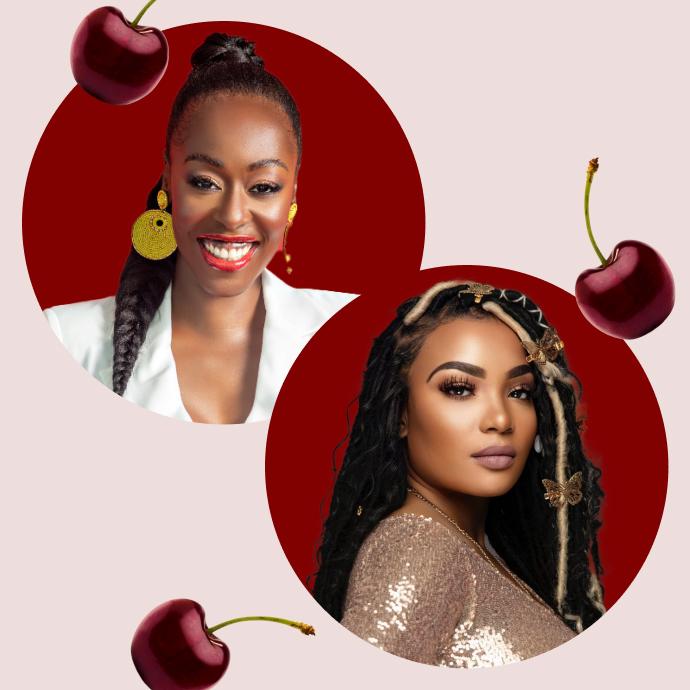Meet the Dermatologist Making Waves in Wellness for Skin of Color



Gabrielle Wooden


Dermatologist Adeline Kikam, MD, a.k.a. @brownskinderm, is a wellness provider, an educator for skin of color, and serious all-around inspiration. If you follow her on Instagram (she has more than 38,000 followers!), you know that all of her posts will not only provide a study-backed perspective, but also advice geared to help people of color to better understand their skin and how to care for it.
From dropping intel on which sunscreen to use, to reminding the skincare industry that true diversity and inclusion does not end with a social post, Dr. Kikam is the skincare advocate and leader Instagram needs. We were lucky enough to catch up with her, learn about her career in wellness, and find out what five actions we can take to create a better world in skincare.
It's about glam time you treated yourself.
Join IPSY

Be curious about your skin.
Raised in Cameroon, Africa, Dr. Kikam had always had a natural interest in skincare because she herself suffered from acne. “I remember in high school being told, ‘Oh, you’ll grow out of it,’ and then in college, I was still walking through the beauty aisle not knowing what to pick for my acne, or why my darker skin was so hyperpigmented. I wanted to understand the products I was looking at: What is going to help me?”
She also had a curiosity about skin since she was very young. “I have always been a very visual person. In Cameroon, you see a lot of tropical skin diseases that you don’t see in the U.S. As a child, I was always curious and wanting to understand these diseases. Later in life, I knew I wanted to work in a tropical country because these are places where you need visual skills to treat people when testing isn’t always available.” While Dr. Kikam’s curiosity eventually led her to pursue dermatology, it also gave her a better understanding of her own skin.
Take care of your skin—and your mind.
Flash forward to today, where Dr. Kikam is not only a sought-after dermatologist, but she is also a celebrated social media resource, sharing her insight on how to care for a variety of skin types and disorders. Part of that care, she says, should also involve mental health. She notes that visual skin conditions like psoriasis, acne, atopic dermatitis or eczema, all can have a major effect on self-esteem and mental health. And for skin of color, post-inflammatory hyperpigmentation only prolongs the healing process.
“When teens who are suffering from severe acne come to me, I always find certain things to compliment them on, to let them know they're still beautiful regardless.” She also noted that skin conditions that aren’t publicly visible can also have an effect on mental health—like hidradenitis suppurativa, which appears in areas under the breasts or in the genital area. “These diseases can have a huge impact on your dating life and intimacy. I often encourage patients who suffer from such conditions to come to an appointment with their significant other, so that I can help facilitate a discussion and reemphasize that the condition is not contagious. Skincare and mental health go hand in hand.”
Understand certain skin care practices—and where they come from.
Beyond addressing mental health, Dr. Kikam is a proponent of talking about skin concerns within the lens of our society, especially when it comes to practices like skin bleaching. She recounts: “As a child growing up in Cameron, you notice adults bleaching their skin. When they talk about taking care of their skin, they are talking about skin bleach. So that is your initial introduction to skincare. You think, ‘When I grow up, maybe I'll get my own skin-bleaching cream.’”
Yes, colorism can start at that very young age. In many ways, society reinforces that being lighter is to be more desirable—so by the time you get to adulthood, you've already been programmed to use these products, she says. That programming is even more normalized today. “In areas like Southeast Asia, Africa, Jamaica, or the islands where many people are practicing skin bleaching, many companies are capitalizing on this and becoming bolder in how they advertise. Skin bleaching is much more public there. It’s on billboards. It’s on TV. They are normalizing skin bleaching in a way that I didn’t see growing up.”
Skin bleaching can also have serious repercussions to your skin health. Citing a study from Ghana published in the International Society of Dermatology that sheds light on the complications related to skin bleaching, she told us, “I think it's really important that we continue to have academic research like this, but also that we think about the full picture. The way we typically talk about skin bleaching products is very superficial—we tend to chastise the consumer or stop at the shock value of people bleaching their skin. But we don’t delve into the legitimate studies that prove that being light-skinned is beneficial in society. We don’t talk about how darker-skinned people are treated. Instead, we are pointing fingers at the people. People bleach their skin because society in many ways tells people that darker skin is not beautiful.” By having a 360-degree conversation about these topics in dermatology and beyond, Dr. Kikam holds that we can better understand the source of otherwise controversial practices like skin bleaching.
Ask skincare brands to back their claims.
Having conversations about societal influence means also talking about technology. For example, she notes that while blue light can be used to treat certain skin issues, if not used correctly, it can actually cause hyperpigmentation in darker skin. This is a particular concern, she points out, when it comes to blue-light emitting devices like smartphones. While broad-spectrum sunscreens containing FeO can help protect against blue light (which is also known as violet light or VL) some skincare brands market products as protective against VL without properly backing their claims.
“This is a delicate issue because brands have a right to proprietary formulations,” says Dr. Kikam. “We have laws allowing this right because ultimately, it is a business—you don’t want to divulge what makes your cream unique. Some transparency on ingredients is warranted, however. For example, the research surrounding blue light is still evolving, but blue light definitely impacts hyperpigmentation in skin of color and can worsen the condition of melasma. But if you make a claim that your product is filtering blue light—be open about stating how it does that. When it comes to transparency if you are making the decision to claim something, legitimize that claim.”
Imagine an inclusive future of skincare.
While we still have much to uncover in our conversations surrounding care for skin of color, Dr. Kikam predicts the future will be bright. “I am happy with what I am seeing today,” she says. “People are more educated, they’re asking the right questions, and they're asking more of their skincare companies. So in that way, we’re evolving in a good direction.”
She notes that skincare is also evolving into a more inclusive direction. “I hope that it keeps expanding to include more skincare brands by people of color. I hope skincare continues to be inclusive and that inclusivity is not just a fad because of the Black Lives Matter movement but something continues to evolve into the mainstream.”
Want in on all the IPSY Glam Bag fun? Take our Beauty Quiz now to get started. Already an Ipster? Refer your friends to earn points, which you can use toward products. Either way, don’t forget to check us out on Instagram and Twitter @IPSY.
Liked this post? Share!
Related Stories


Beauty Amplified
Celebrating Black Beauty, Creativity, and Culture—This Month and Always
Published on Jan 23, 2026 • 3 min read


Beauty Amplified
Our Favorite Black-Owned Beauty Brands That Remind Us Why Representation Matters
Published on Jan 23, 2026 • 18 min read


Beauty Amplified
61 Women-Founded Brands Currently Changing the Beauty Game
Published on Dec 14, 2024 • 15 min read


Beauty Amplified
These Hispanic Heritage Month Mystery Bags by Jenn Torres Are a Tribute to Latinx Culture
Published on Aug 28, 2025 • 3 min read


Beauty Amplified
Meet the Latinx-Founded Brands Building the Beauty of Tomorrow
Published on Aug 28, 2025 • 10 min read


Beauty Amplified
Celebrating Hispanic Heritage Month and the Power of Latinx Beauty
Published on Aug 28, 2025 • 3 min read


Beauty Amplified
Meet the LGBTQ+ Founded Brands Shaping the Future of Beauty
Published on May 28, 2025 • 14 min read


Beauty Amplified
Come Along for the Pride: Your Invitation to Celebrate Love, Identity, and Expression
Published on May 28, 2025 • 3 min read


Beauty Picked Just for You
Get 5 products worth up to $70
Plus exclusive access to epic deals up to 80% off
Starting at just $14/month. Cancel anytime.